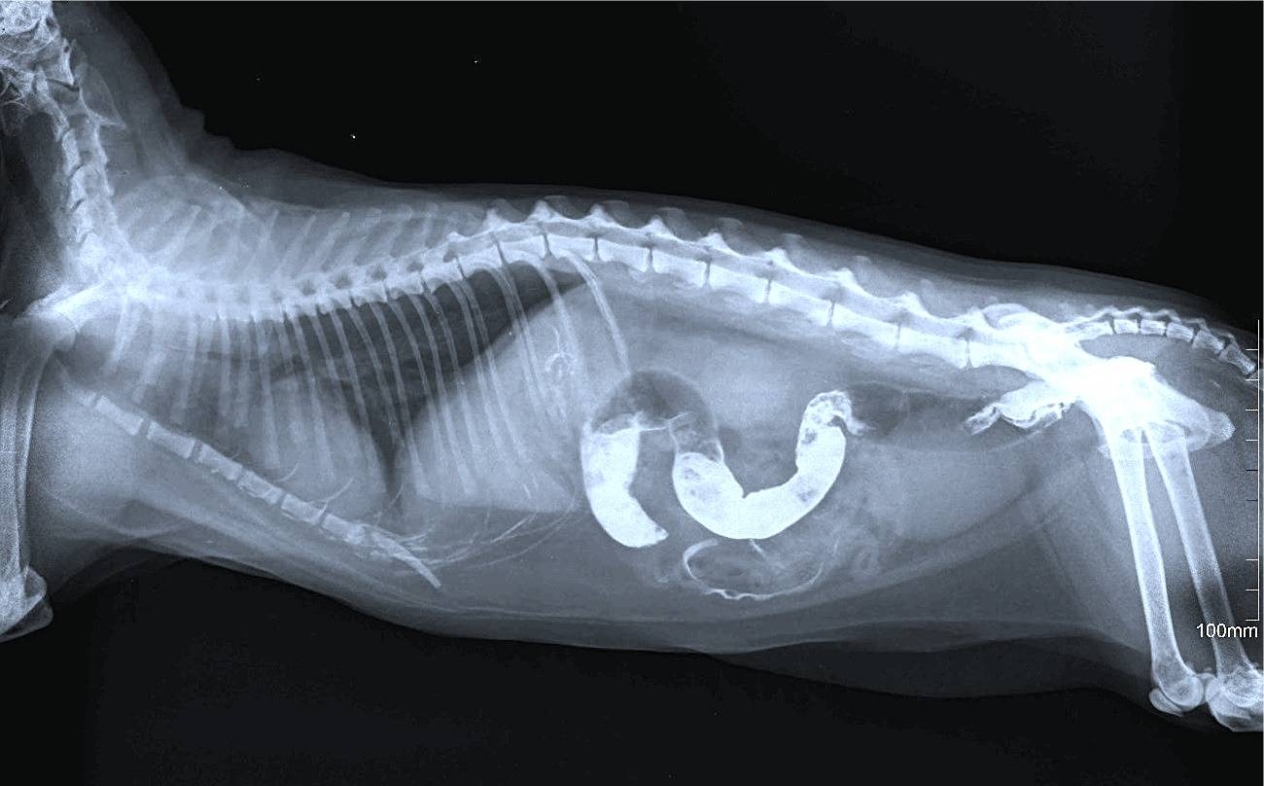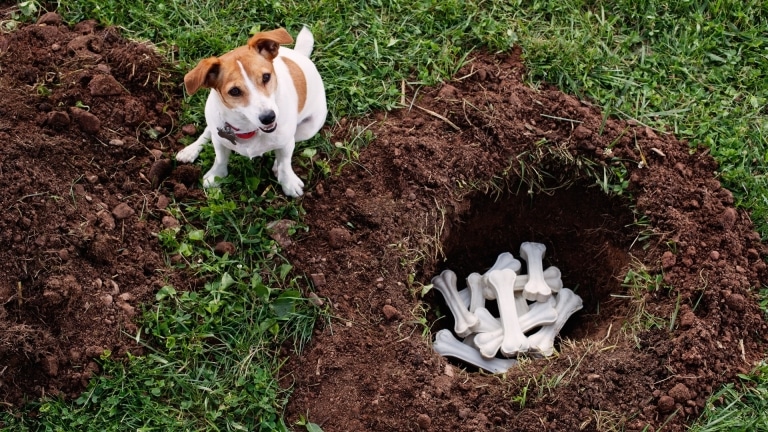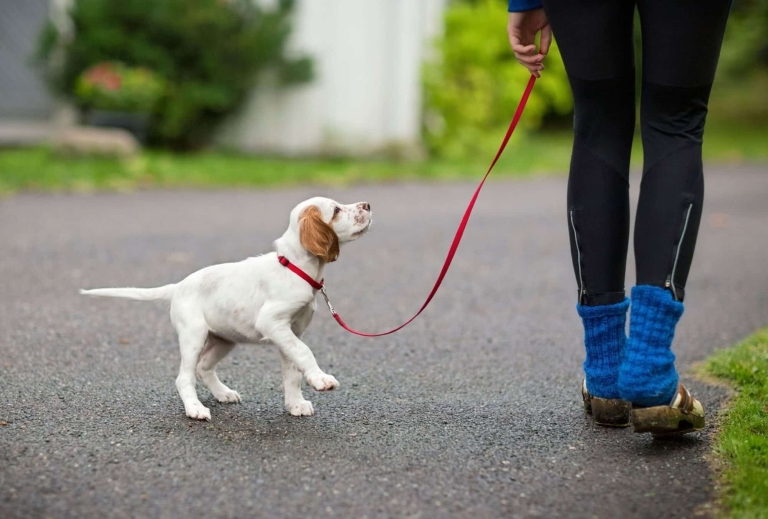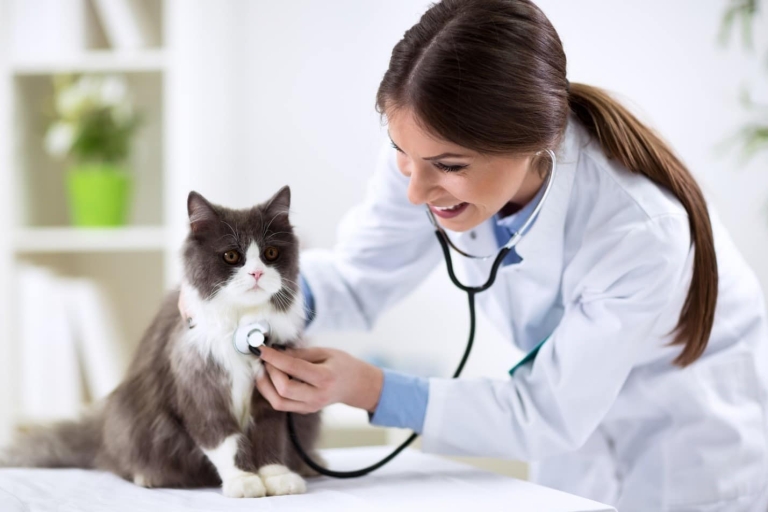
If you stroke your dog’s belly and suddenly notice that it is unusually hard, firm, or even painful, this is a reason for immediate attention. A dog’s stomach is usually soft in a calm state, and if it suddenly becomes hard “like a drum,” this may indicate serious disorders in the functioning of internal organs. The animal may avoid touching, whine, change its posture, lie with its paws tucked in, or vice versa – run restlessly.
There can be several reasons for a dog’s hard abdomen, and some of them are life-threatening. Below are the most common scenarios faced by both veterinarians and groomers of our network, who are the first to notice changes in the dog’s physical condition.
Gastric torsion – a critical condition that requires immediate attention
Stomach torsion (torsion) is an acute and very dangerous condition that occurs more often in large breed dogs with a deep chest. After active play or fast eating, the stomach expands from gas or food and then twists around its axis. As a result, the blood supply is cut off and the organ begins to die.
What it looks like:
– the stomach swells sharply, becomes very hard;
– the dog salivates, tries to vomit, but is unsuccessful;
– restless behavior changes to depression.
This is an emergency situation. You cannot wait – you need to go to the vet immediately. Every minute counts.
Abdominal distention – the result of gas and air swallowing
A less dangerous but still unpleasant cause of a hard abdomen is bloating. It can occur after rapid food intake, drinking large amounts of water, or an excess of heavy food. It also happens when the dog eats too greedily and swallows air.
What it looks like:
– the abdomen is slightly enlarged, tense, but not too painful;
– belching and gas are possible;
– behavior remains stable or slightly decreased.
In this case, calmness, a light walk, and massage help. If the problem recurs, you should definitely change the feeding regimen and consult a doctor to rule out serious problems.
Ascites – accumulation of fluid in the abdominal cavity
If the abdomen is hard, enlarged and looks “bloated from below”, it may be ascites – an accumulation of fluid in the abdominal cavity. There are many causes: heart disease, liver disease, kidney disease, oncology, or trauma.
What it looks like:
– the abdomen is rounded, tense, sometimes “hanging” down;
– the animal is lethargic, appetite is reduced, and sometimes shortness of breath appears;
– fluid can be felt inside when pressed.
Ascites is not always critical here and now, but requires medical intervention. The doctor will prescribe ultrasound, tests and identify the underlying cause.
Tumors or growths – not always immediately noticeable
A hard or asymmetrically enlarged abdomen can also indicate the presence of tumors in the abdominal cavity. These can be both benign and malignant processes. They often grow gradually, and the owner only notices changes in the shape of the abdomen or a reaction to touch.
What it looks like:
– the abdomen is hard all the time, there is a bulge or asymmetry;
– weight loss is possible due to an enlarged abdomen;
– decreased activity, lethargy, changes in eating behavior.
In such cases, a comprehensive examination is required: Ultrasound, biopsy, tests. Do not hesitate – early diagnosis can save your pet’s life.
Conclusion.
A hard abdomen in a dog is not a symptom that can be ignored. From trivial bloating to a deadly torsion, there are many causes, and only a specialist can determine what exactly is going on with your Tails. If you notice changes in the shape, tension or pain in the abdomen, do not delay your visit to the veterinarian. The most important thing in taking care of your dog’s health is your attentiveness and timely response.











